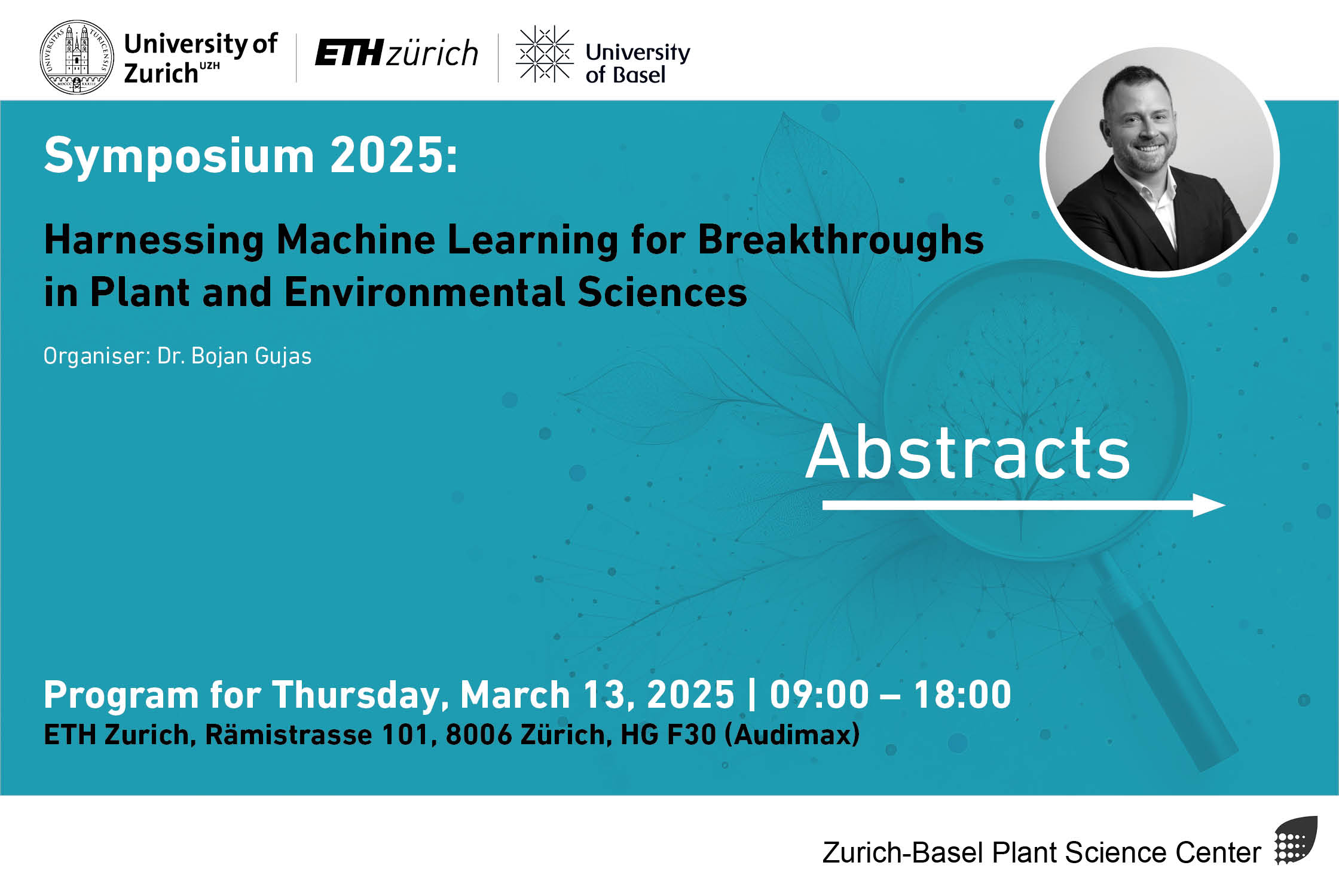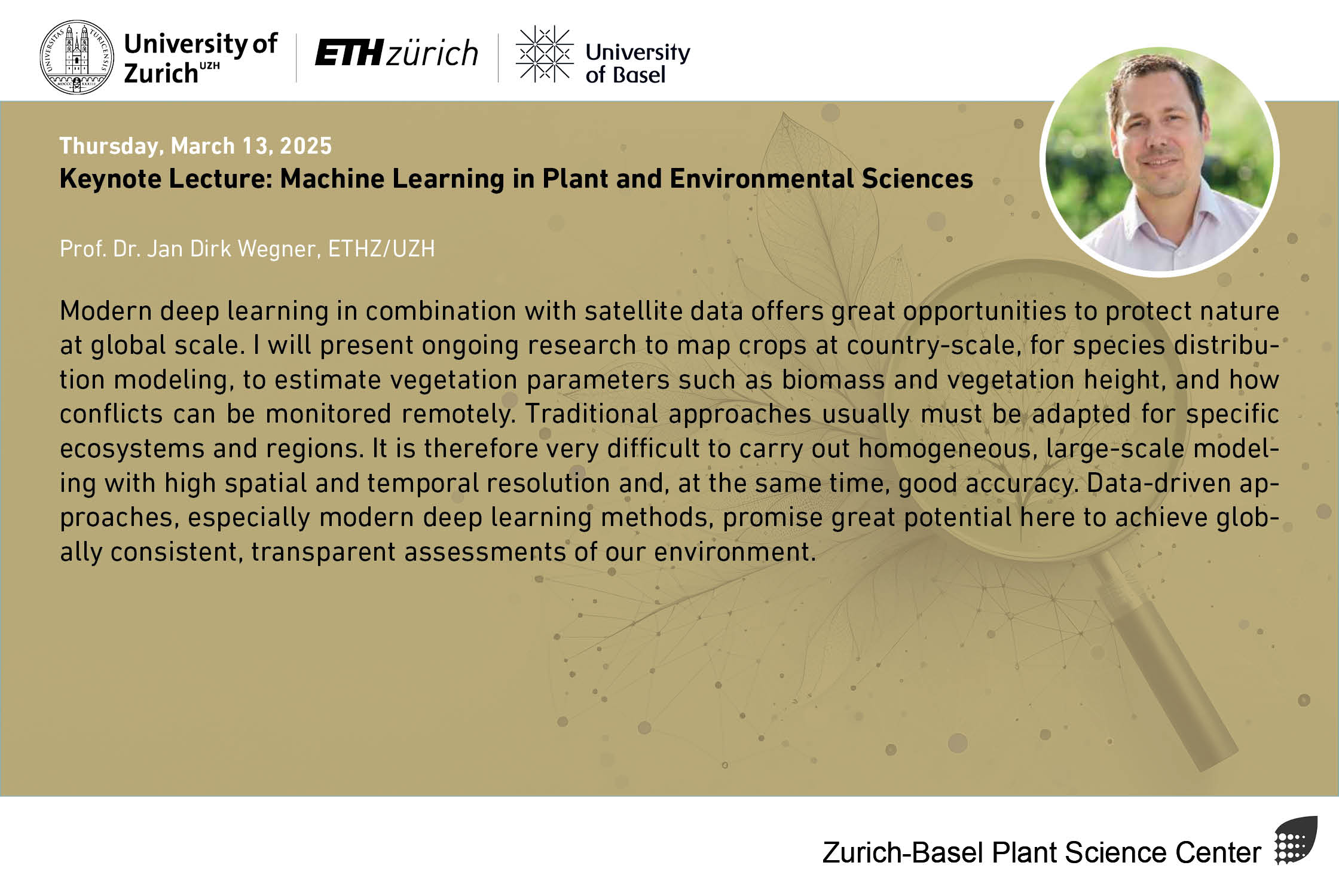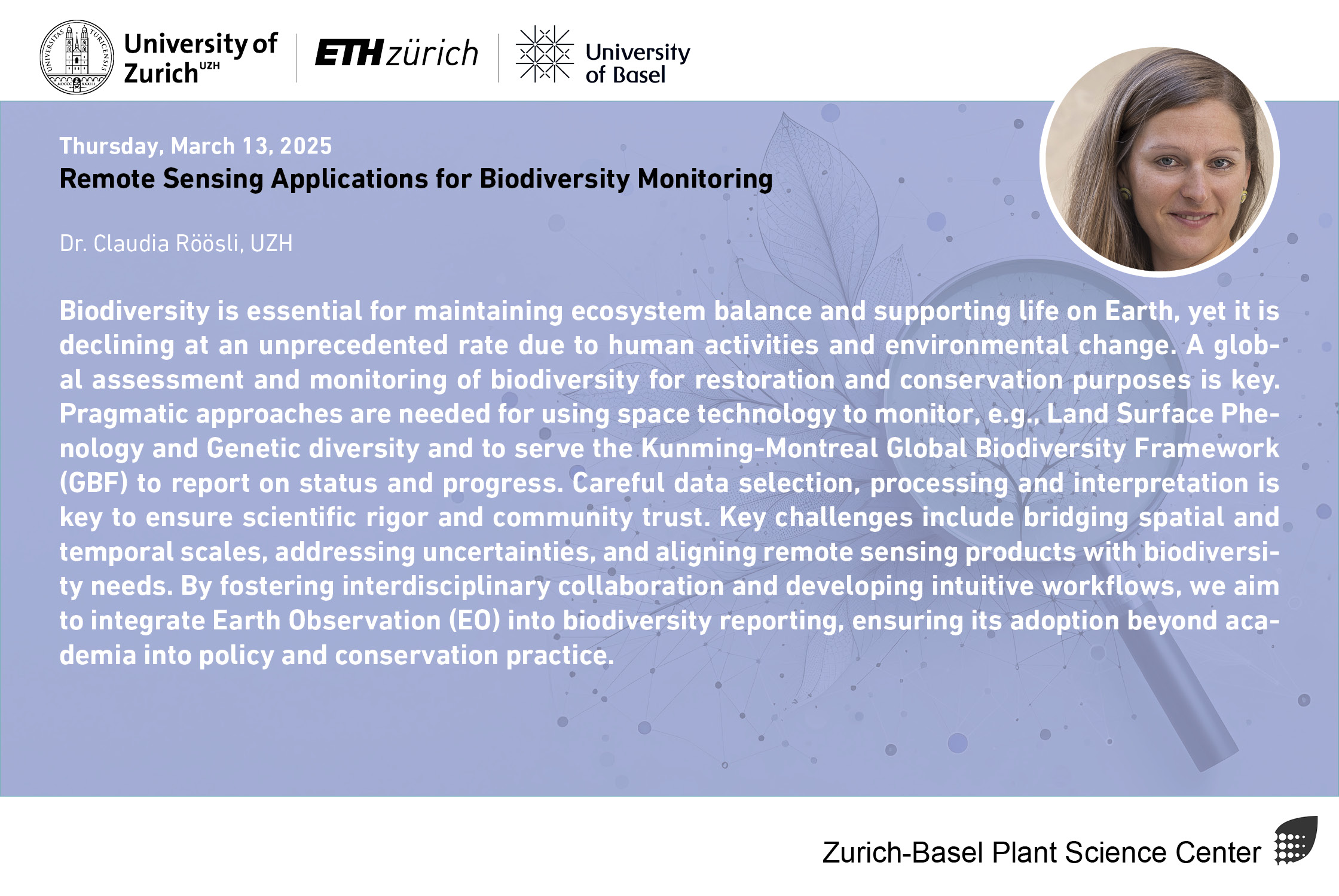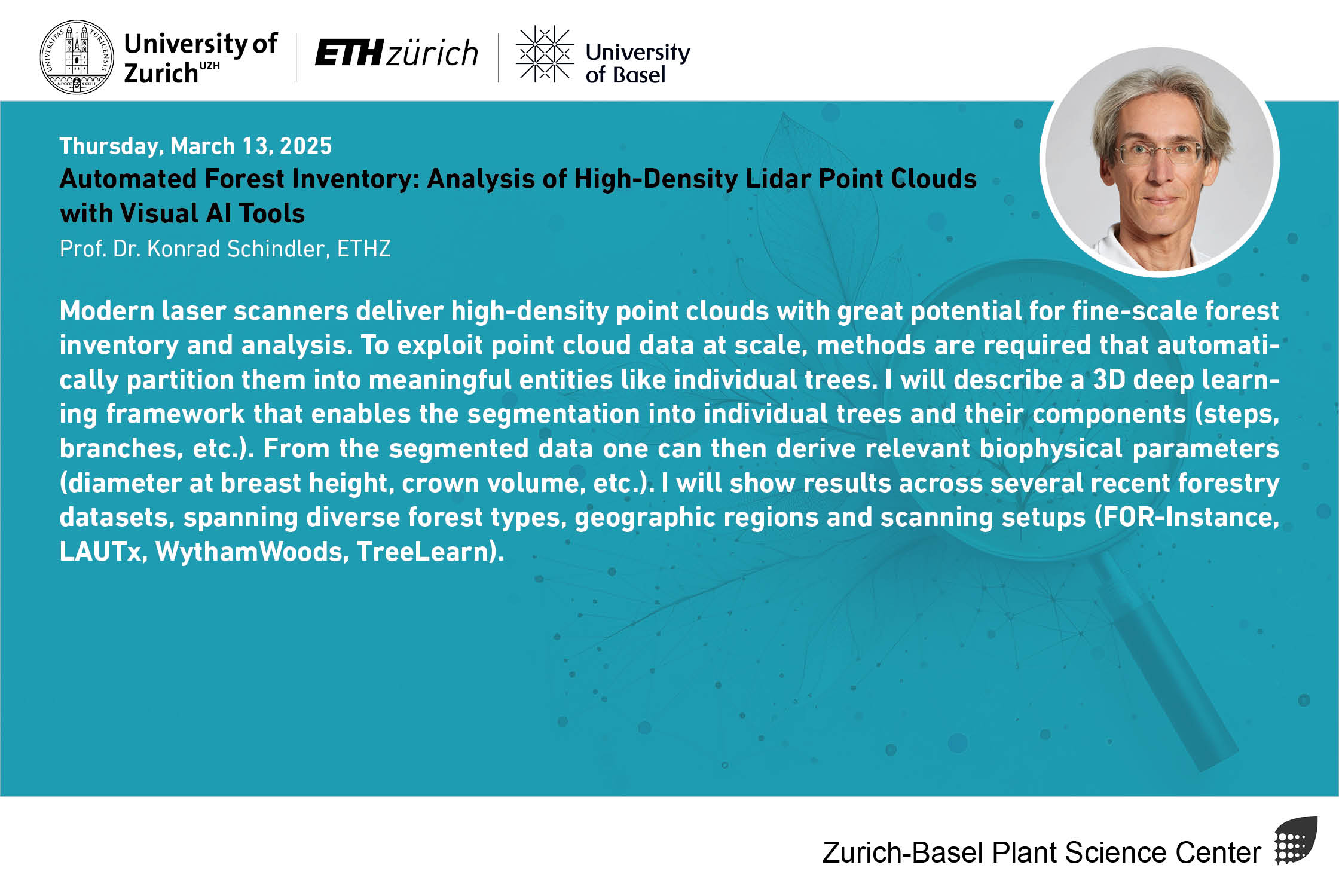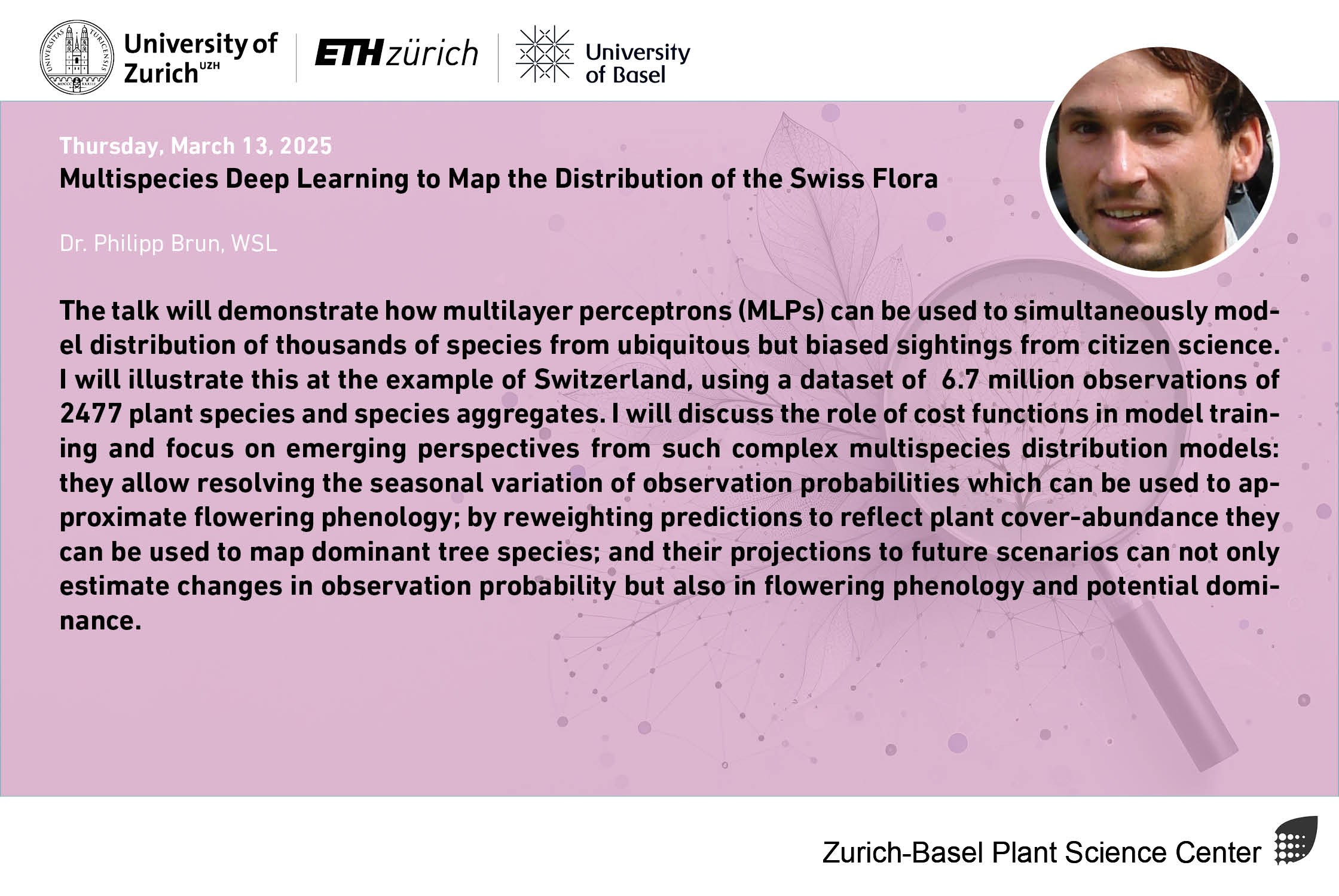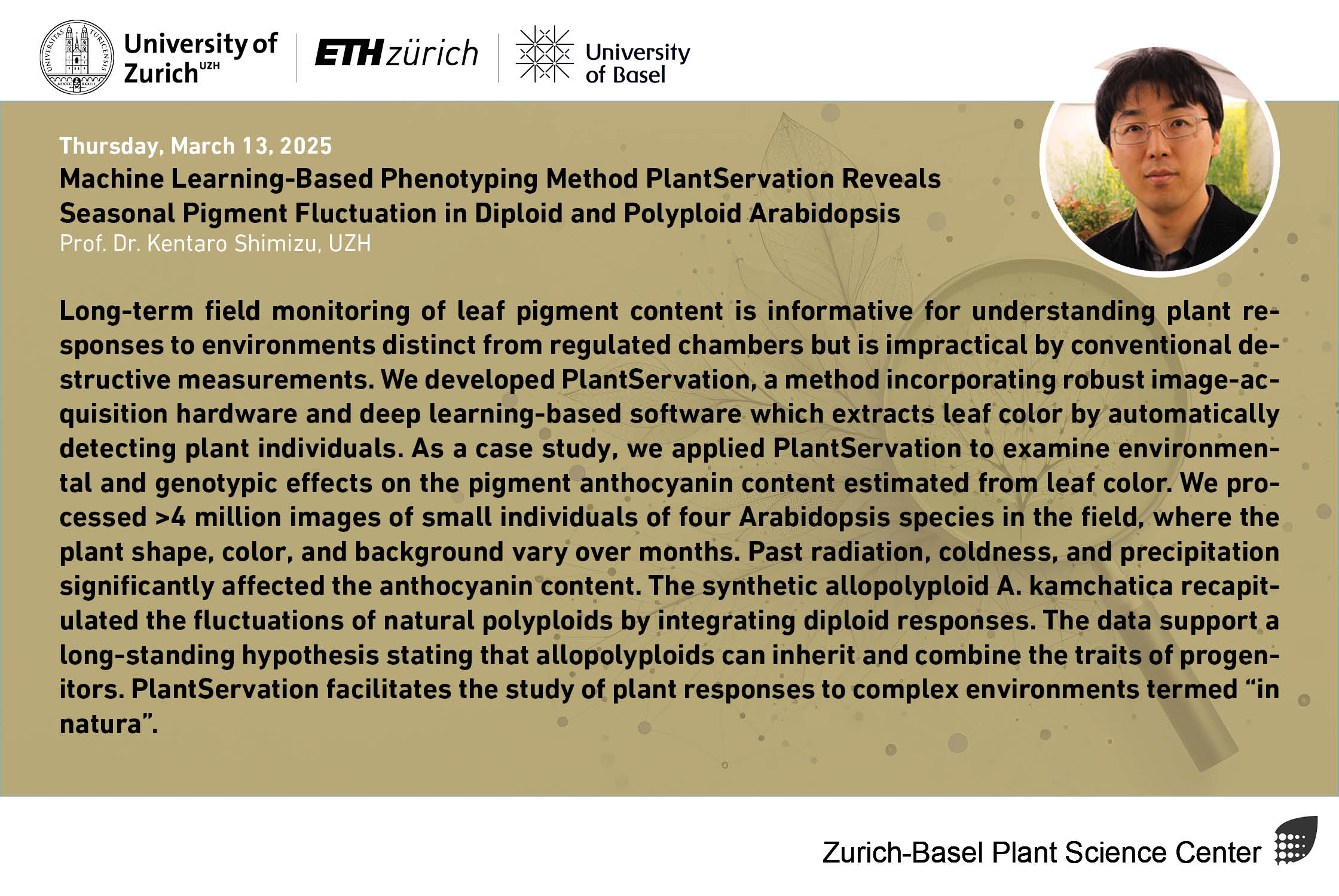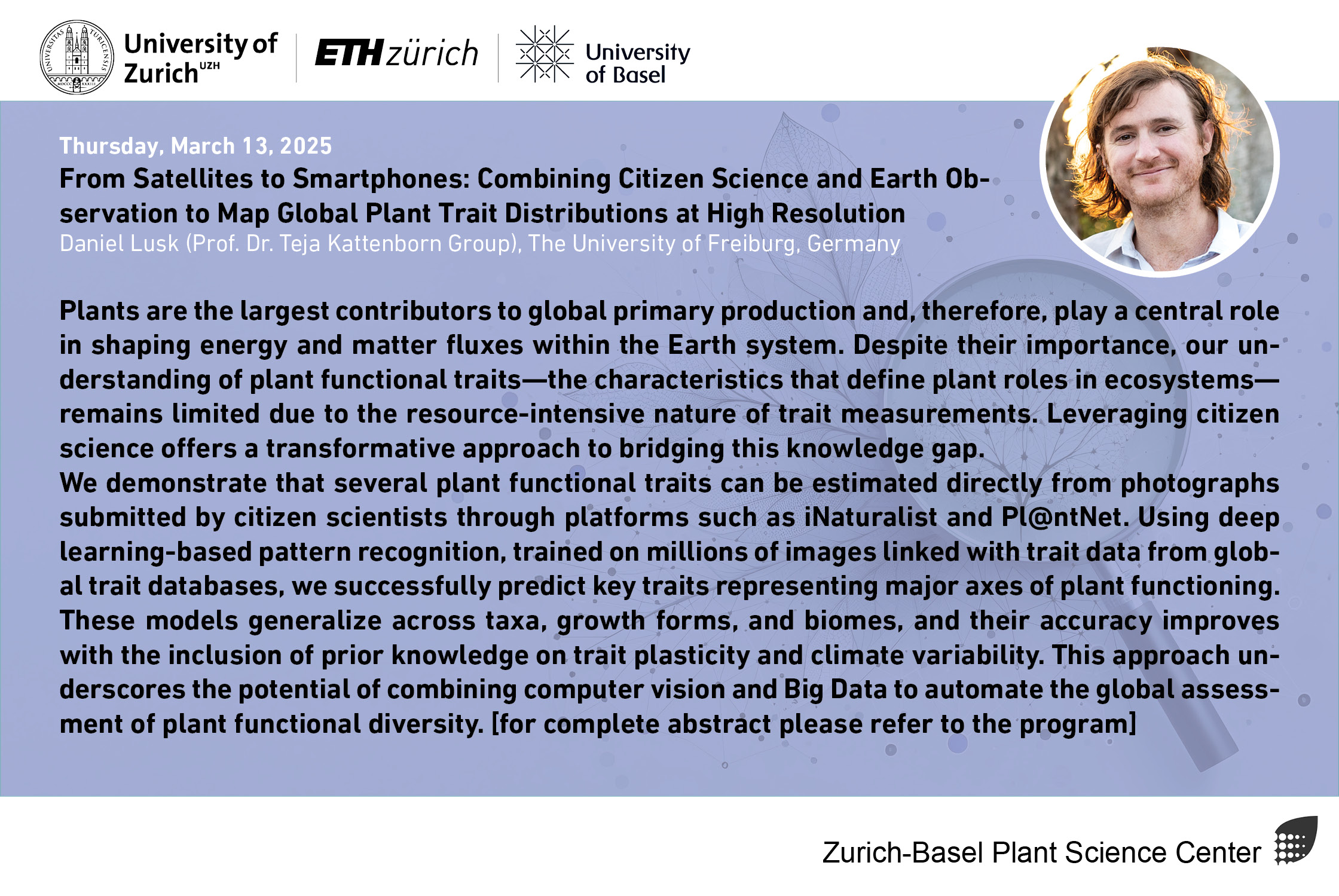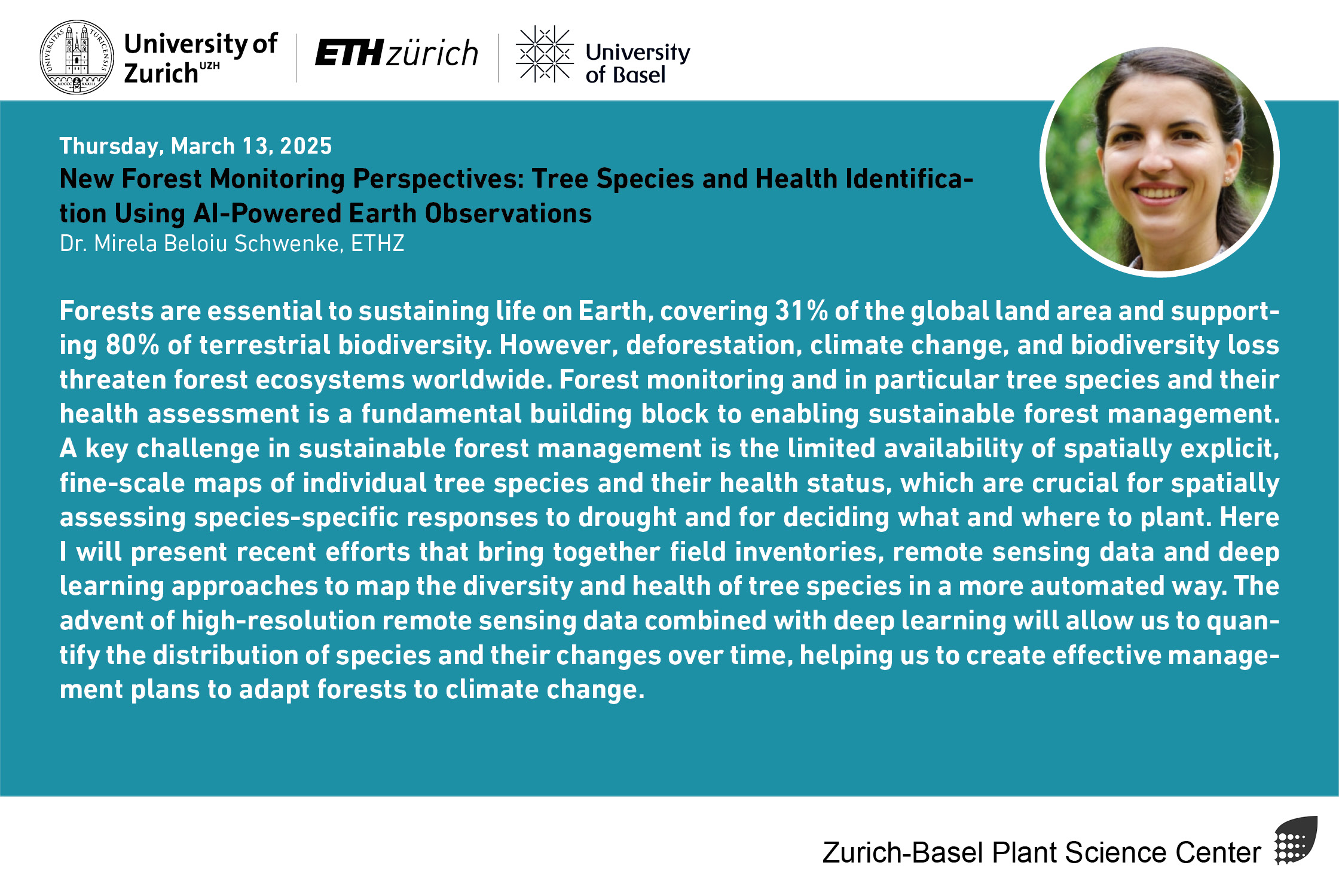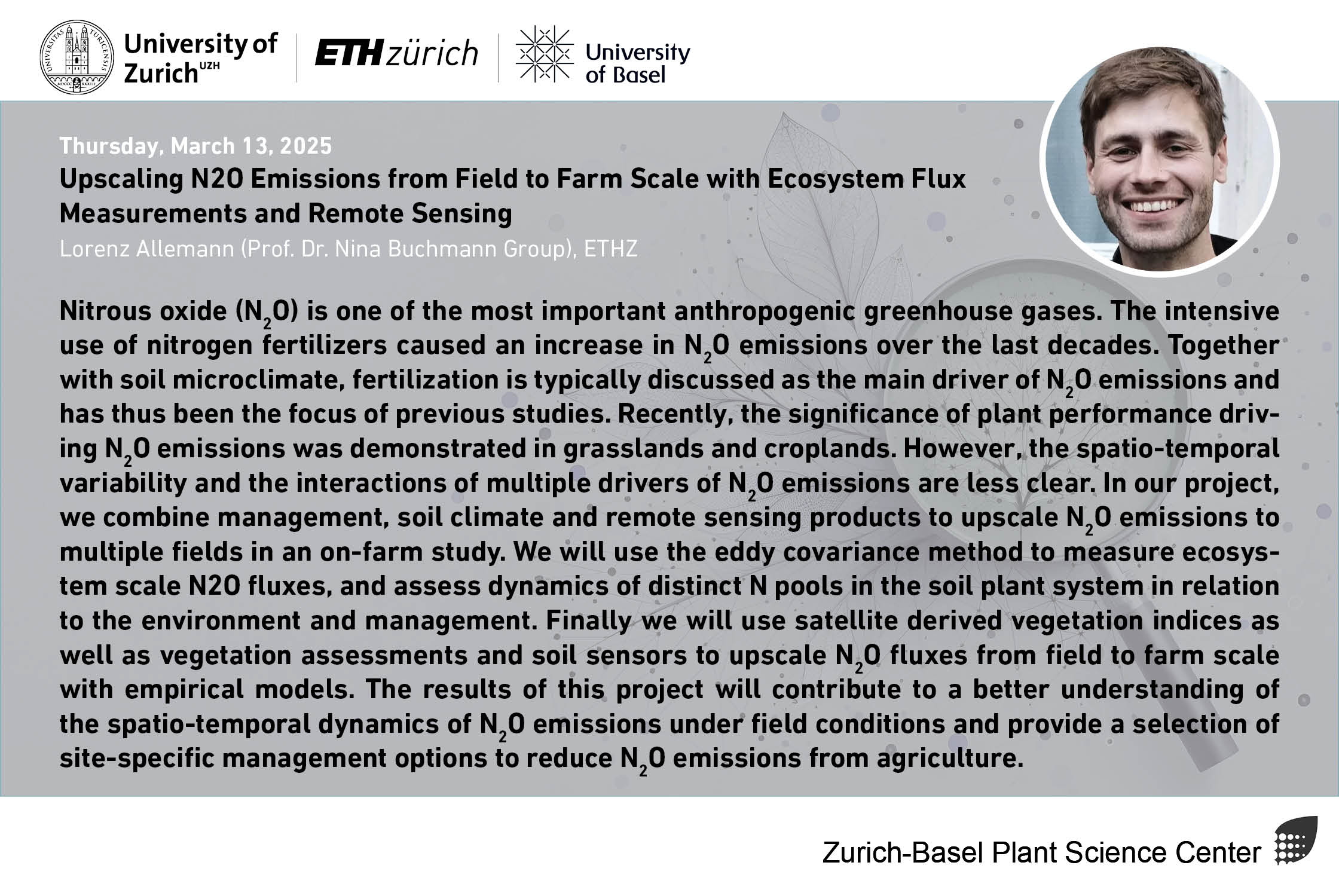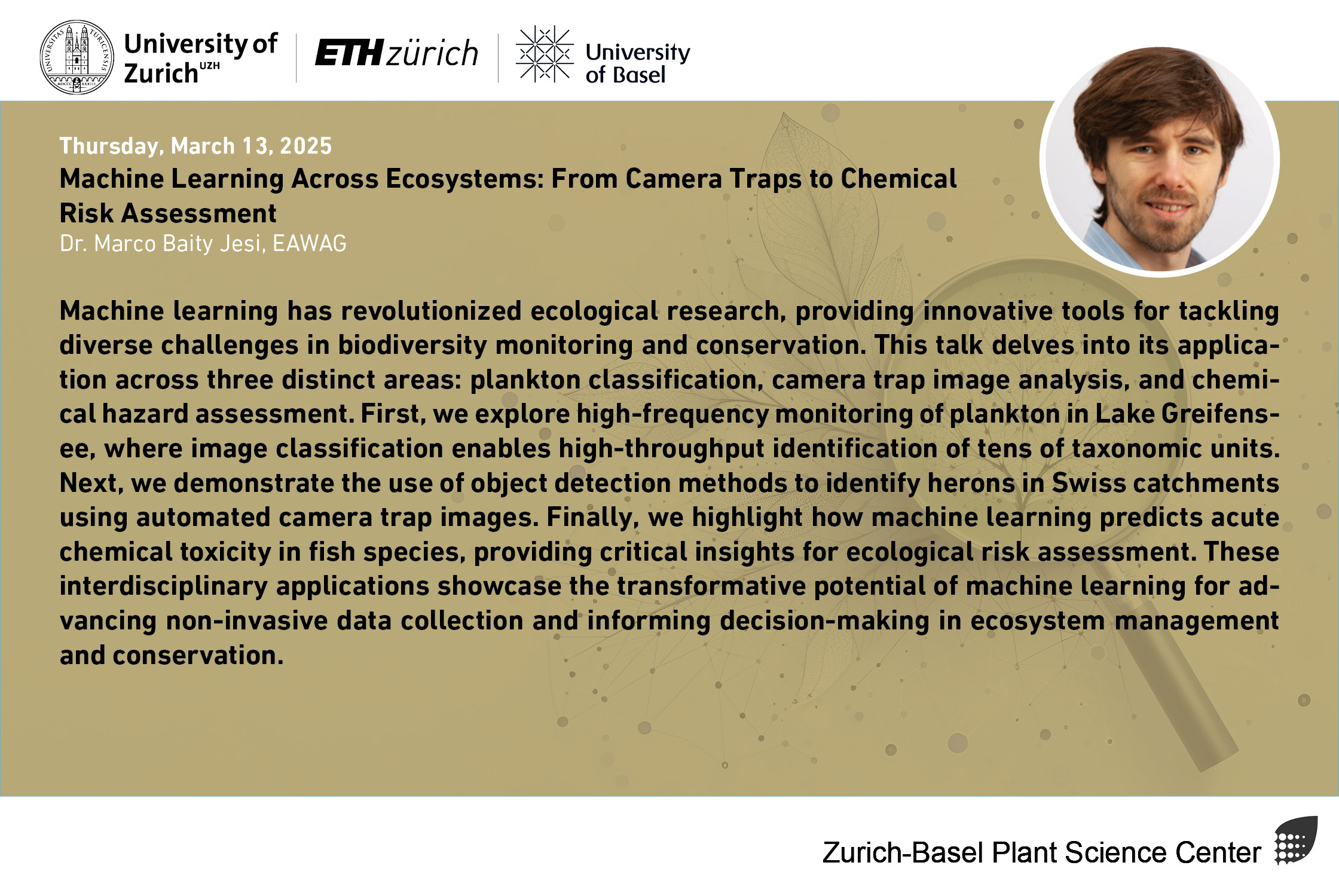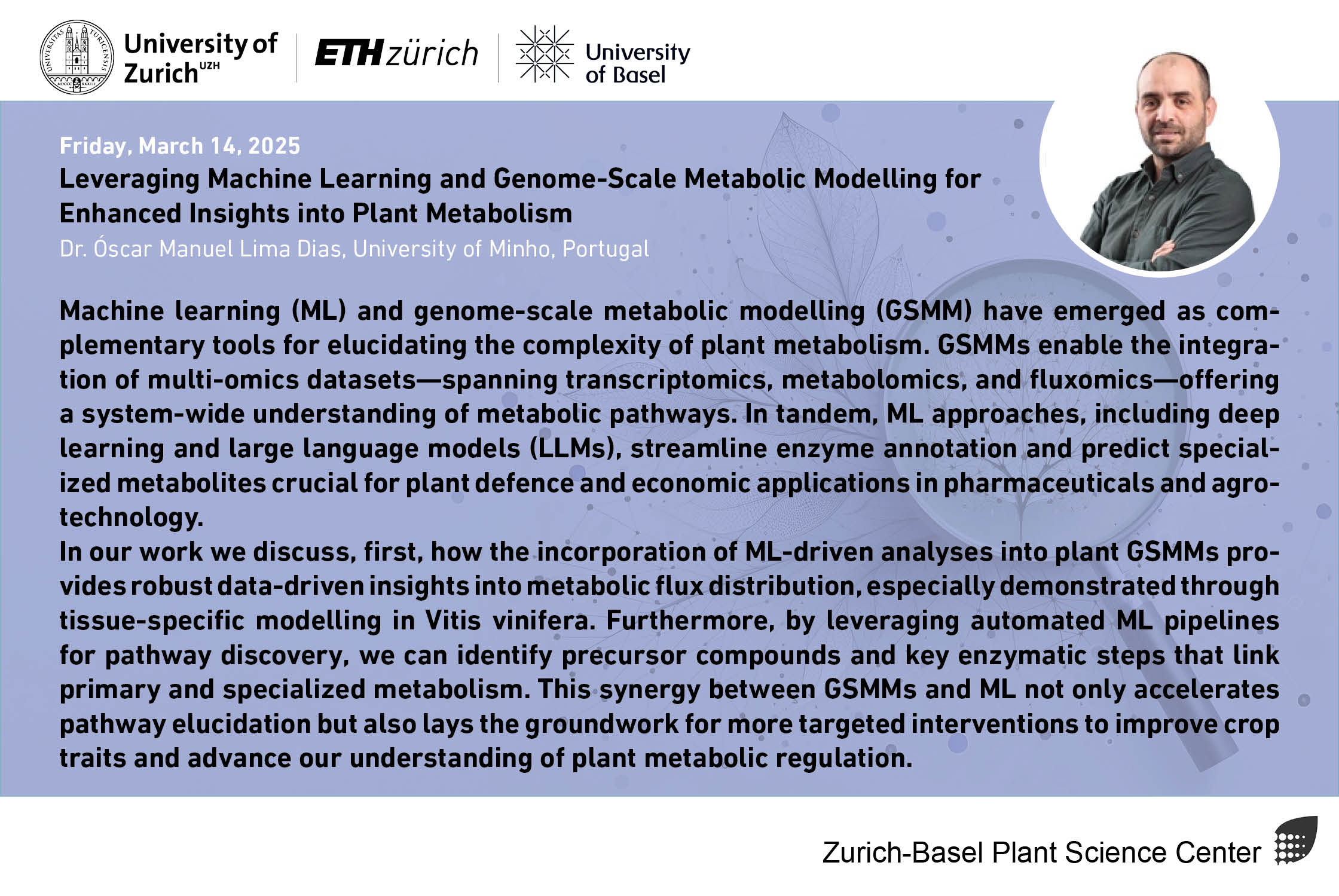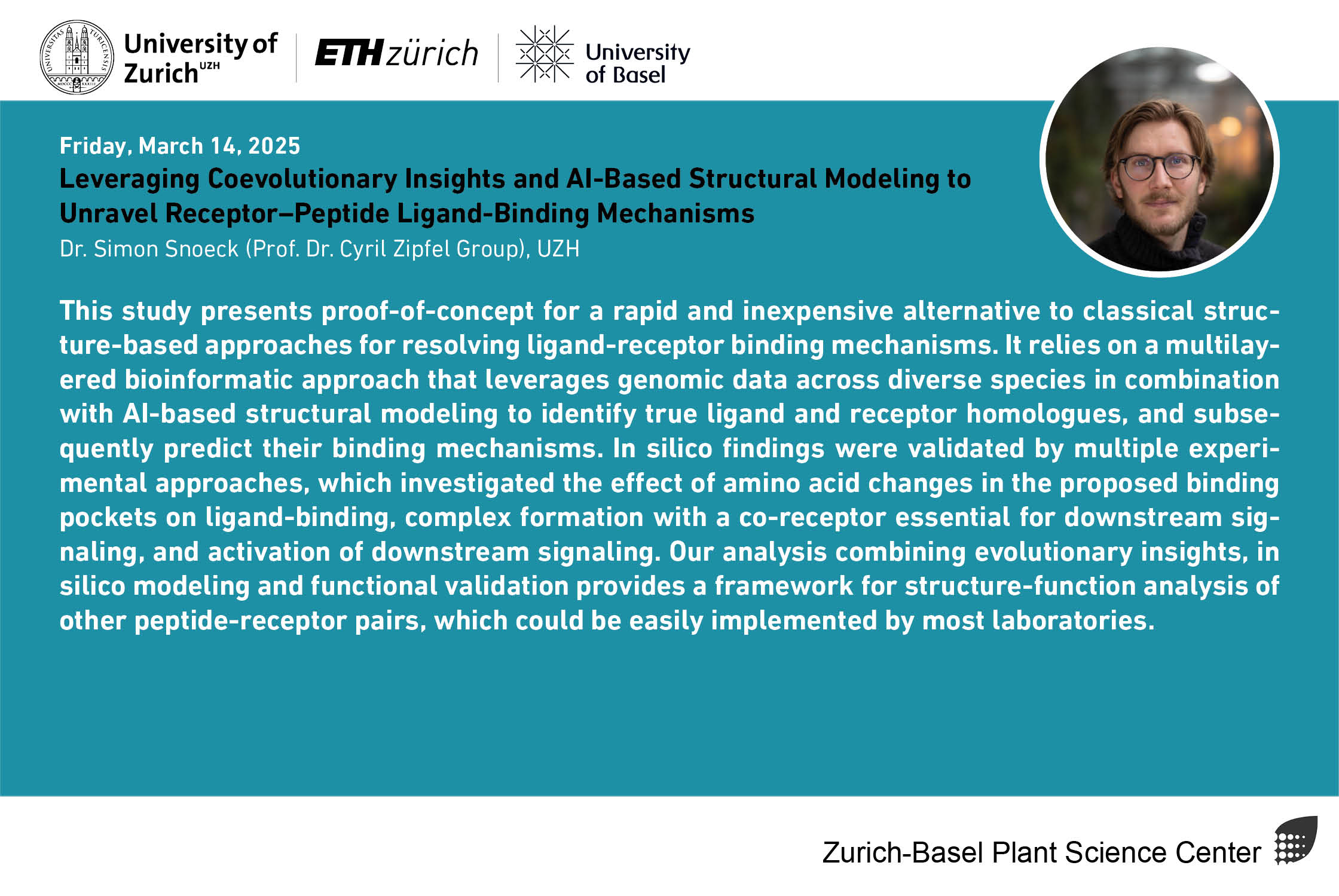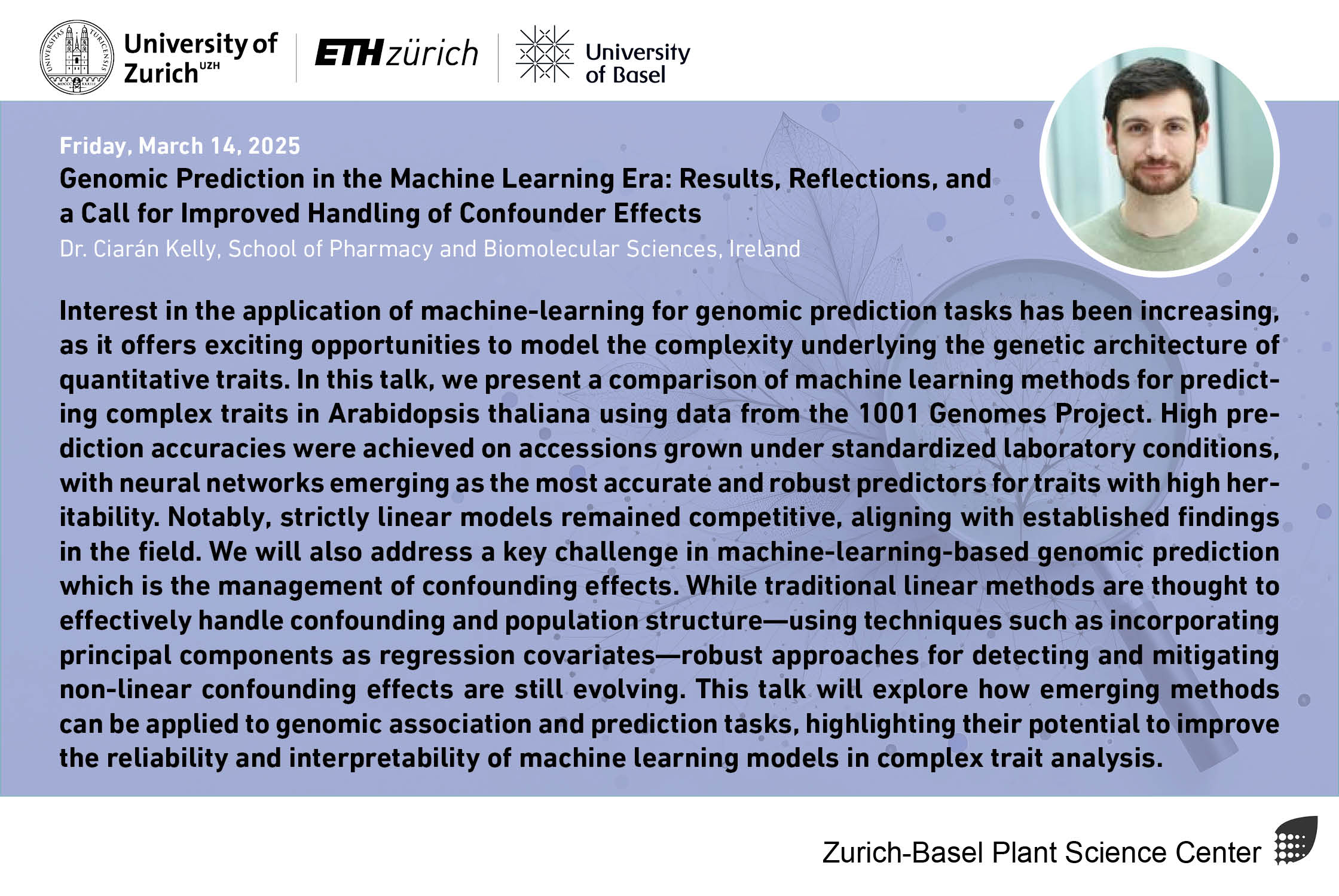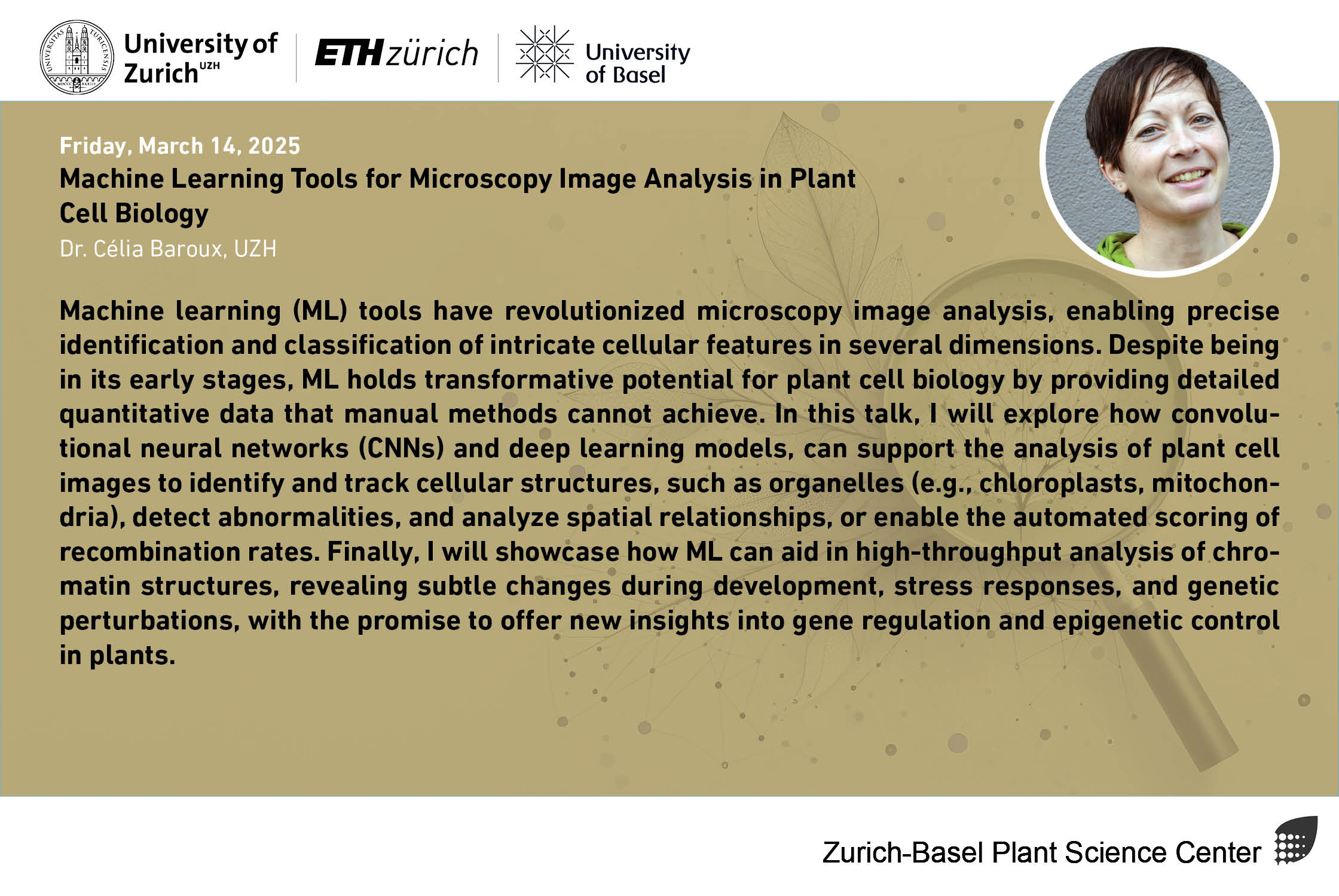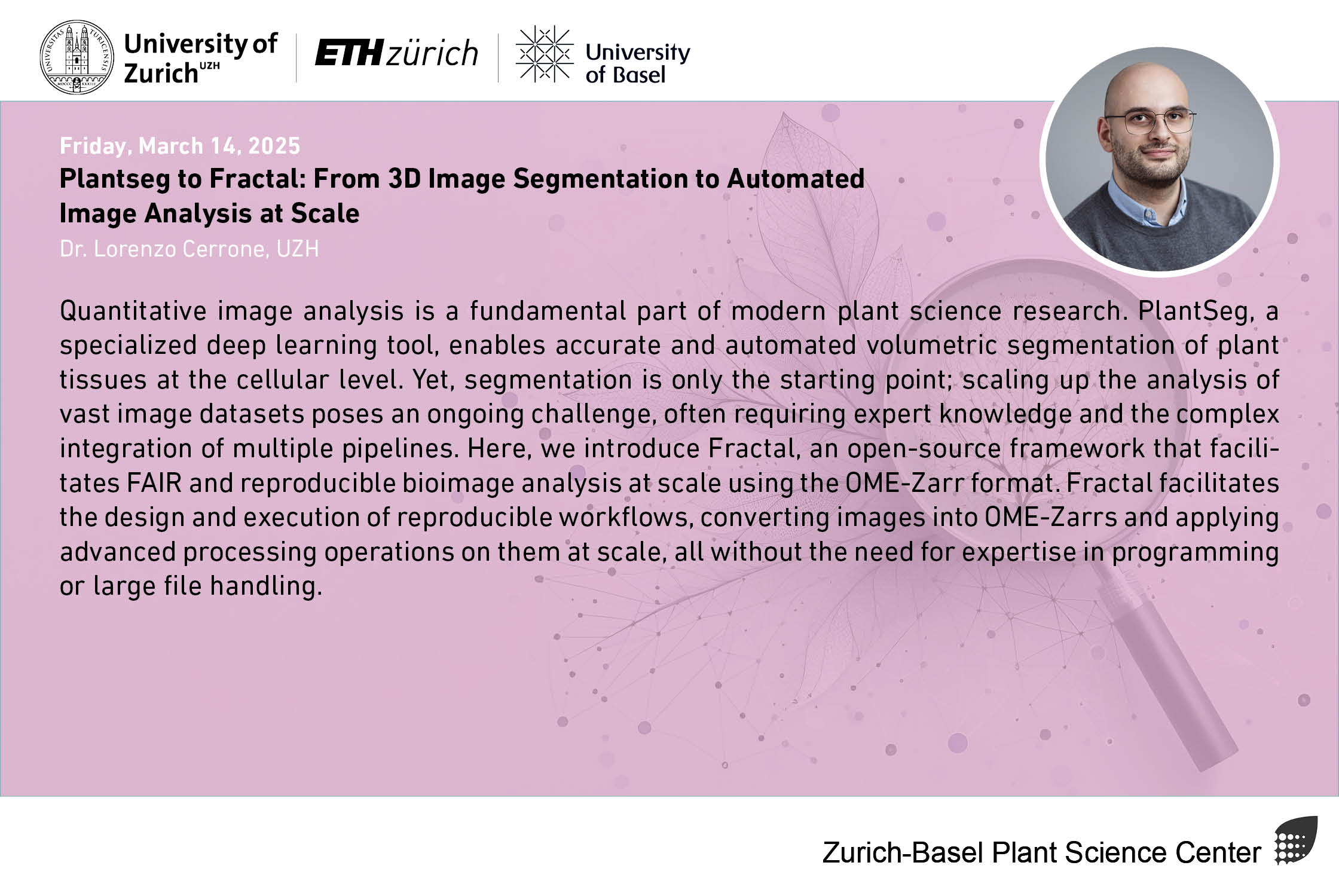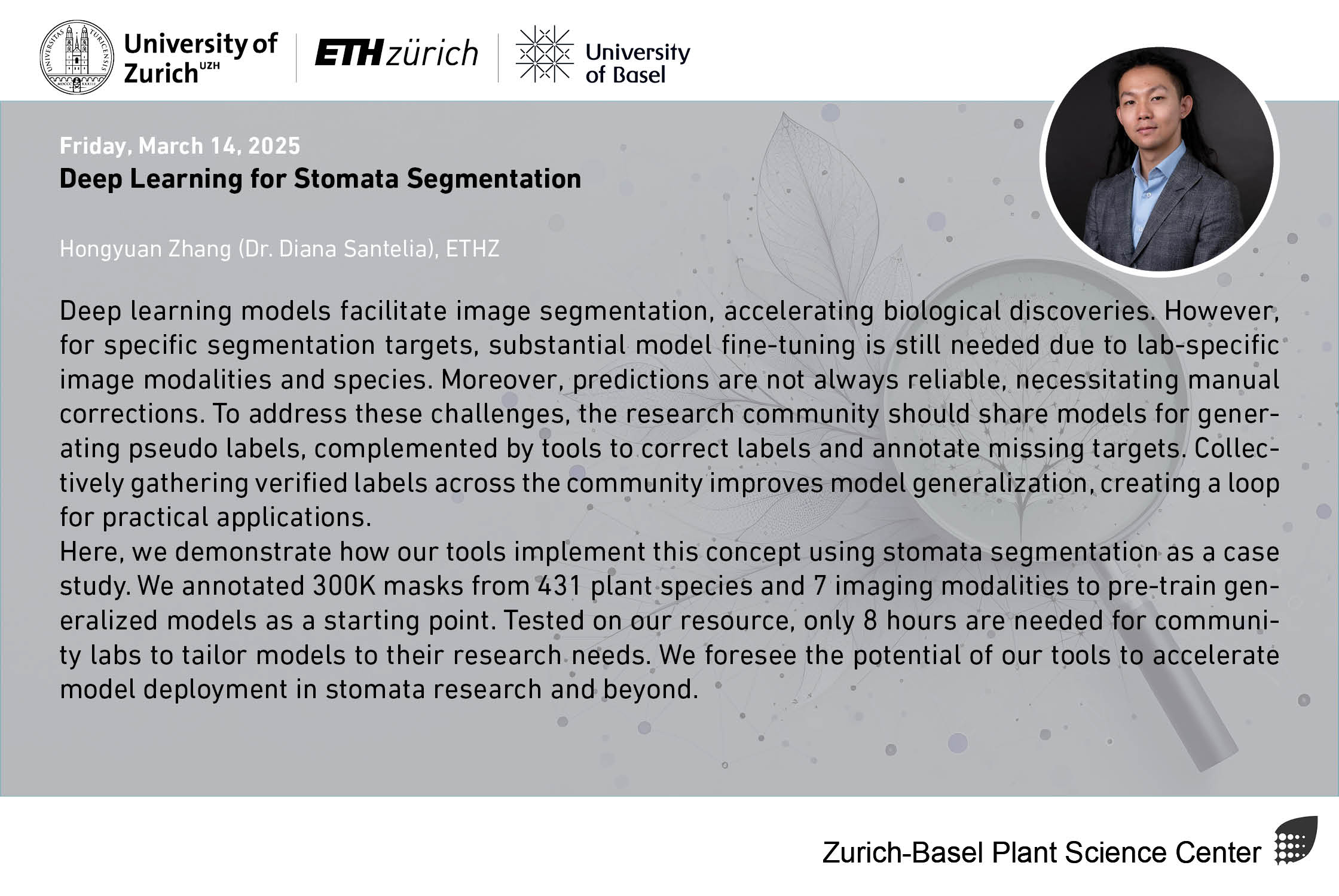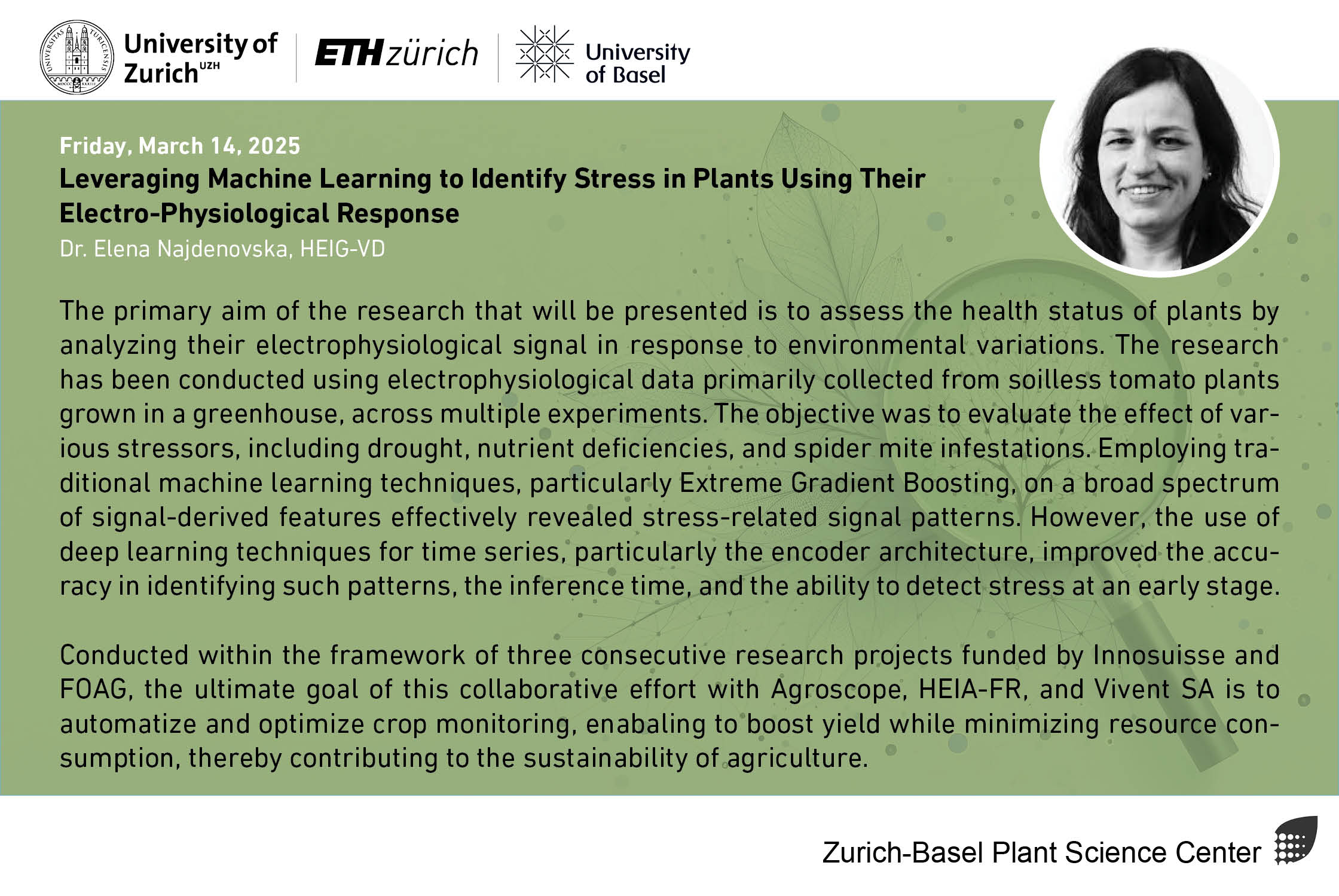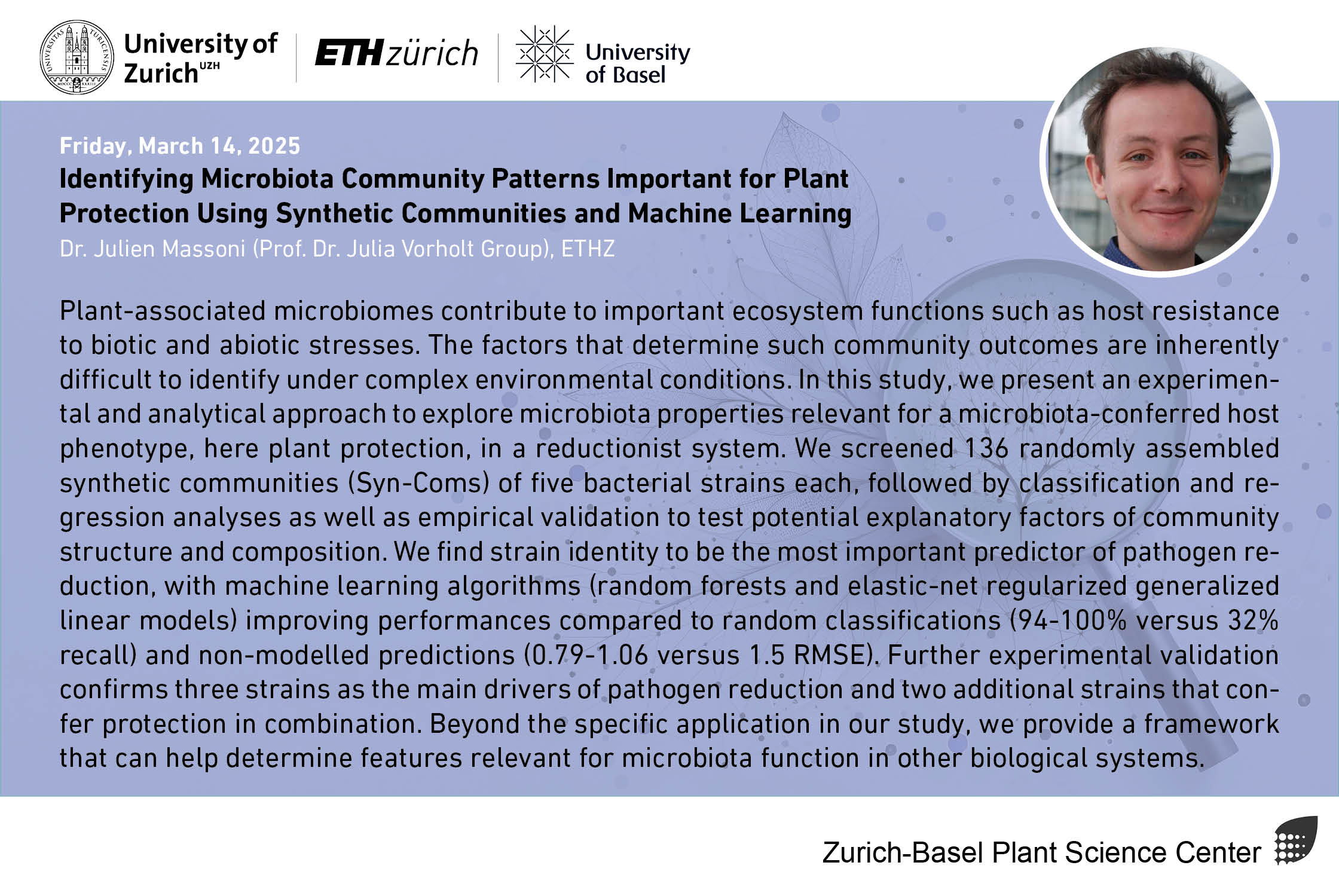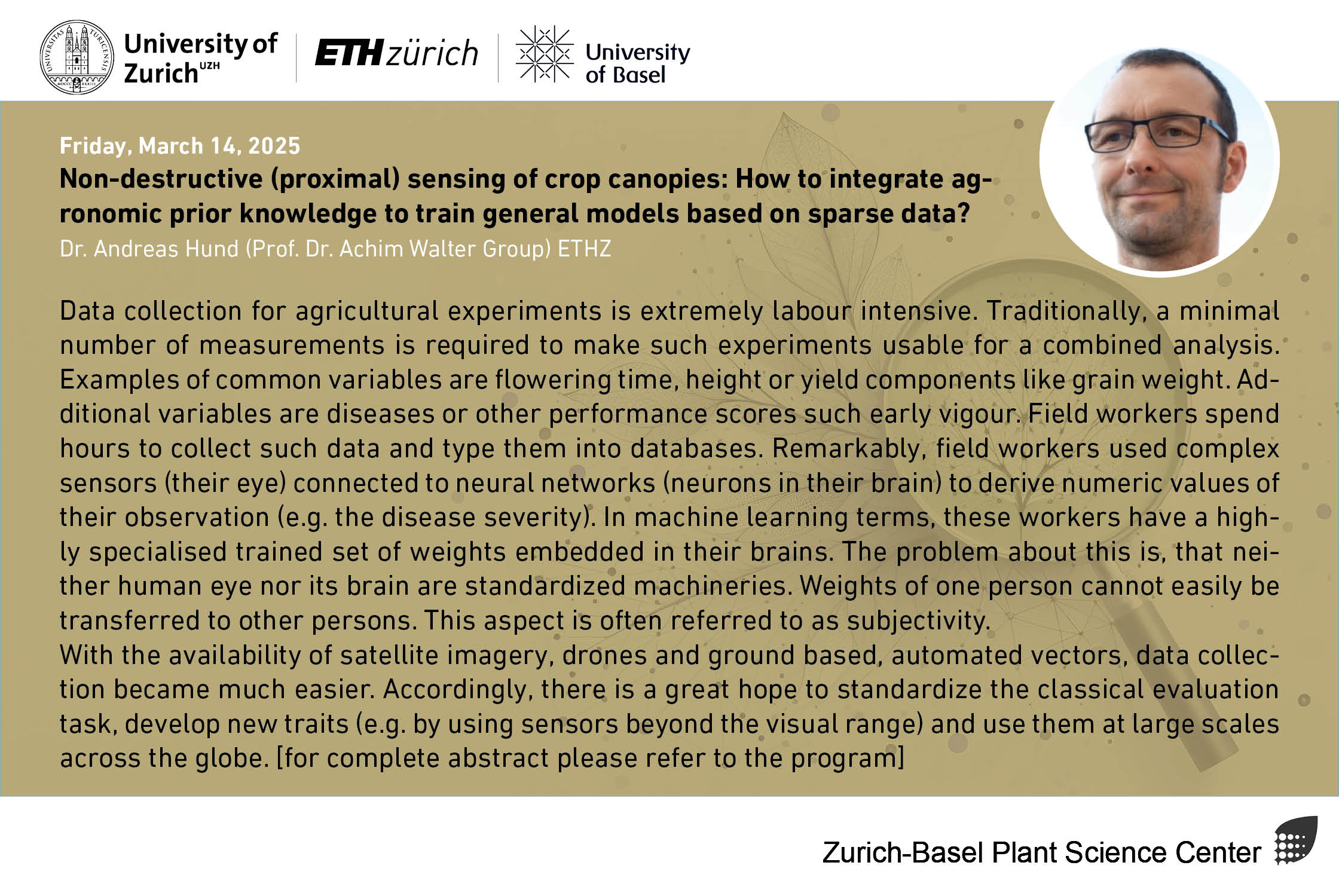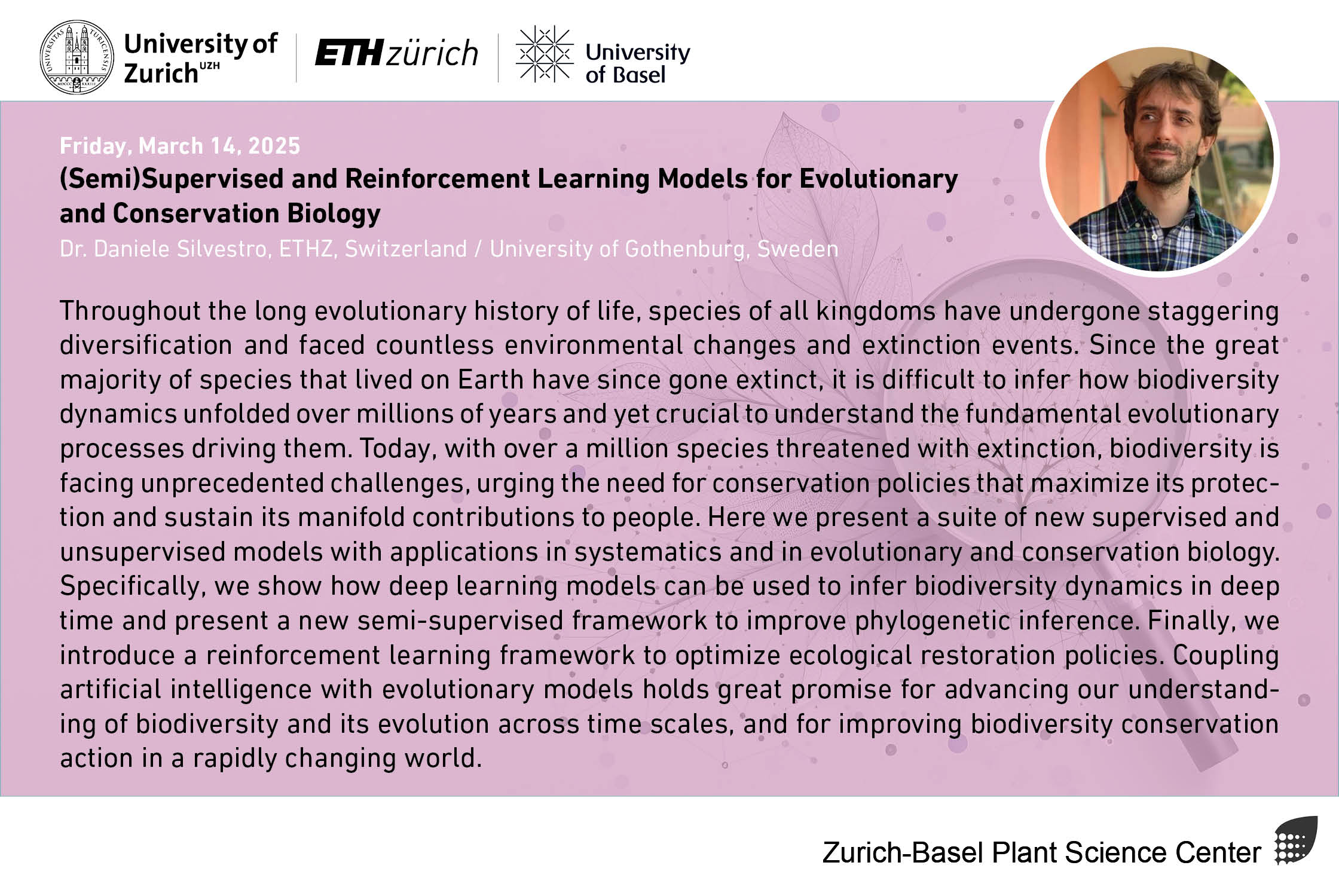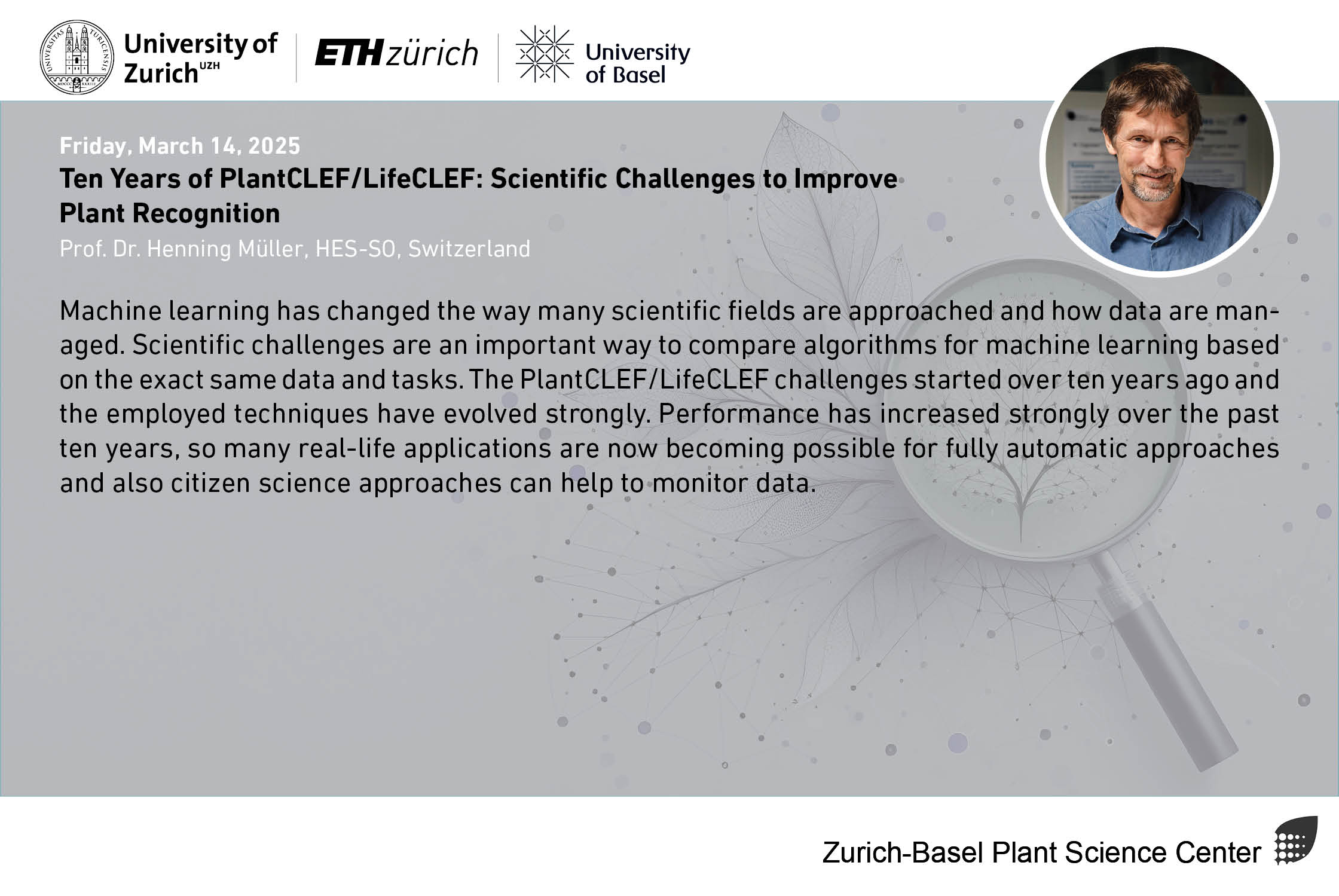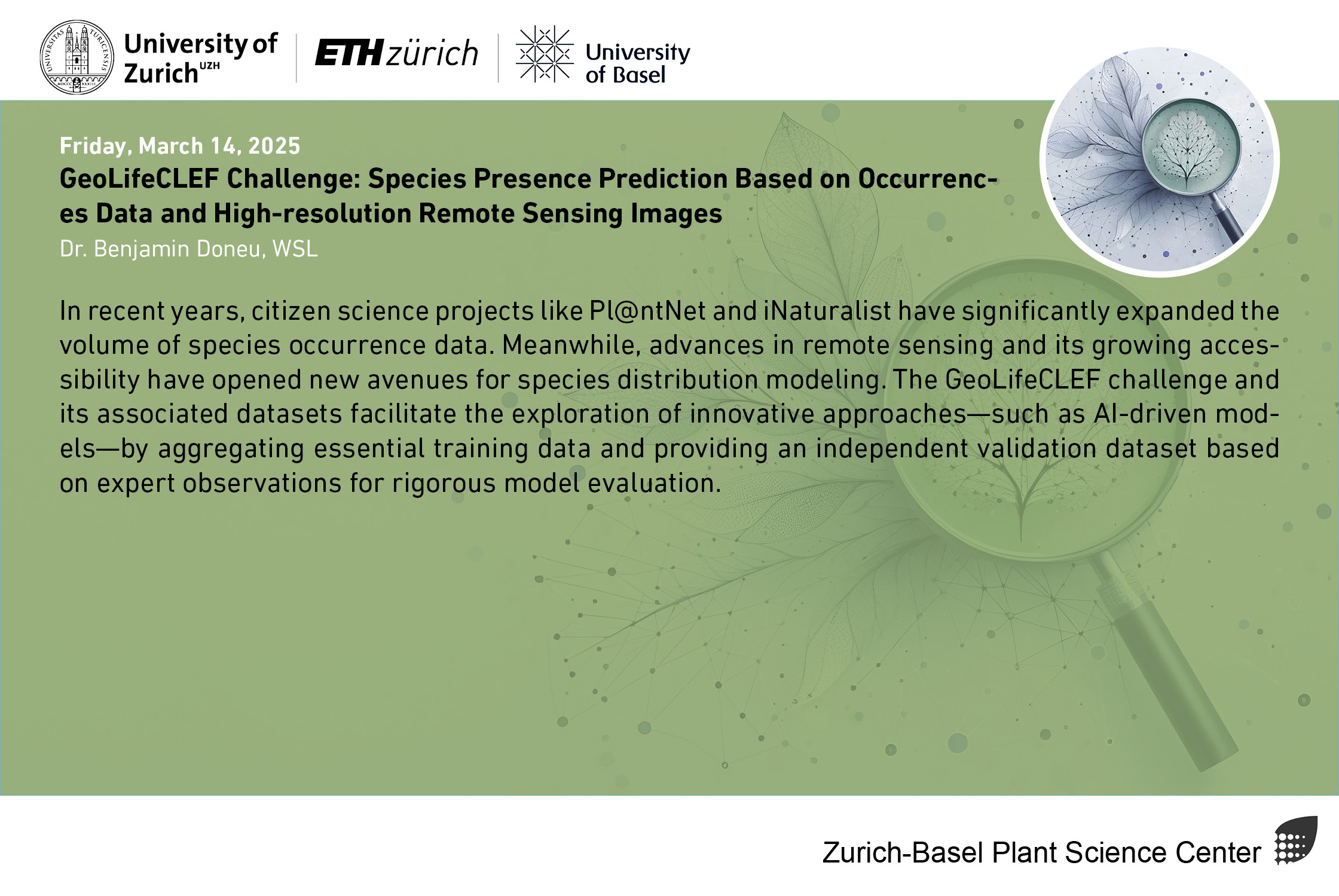Wrapping Up an Inspiring Week on Machine Learning in Plant & Environmental Sciences 2025
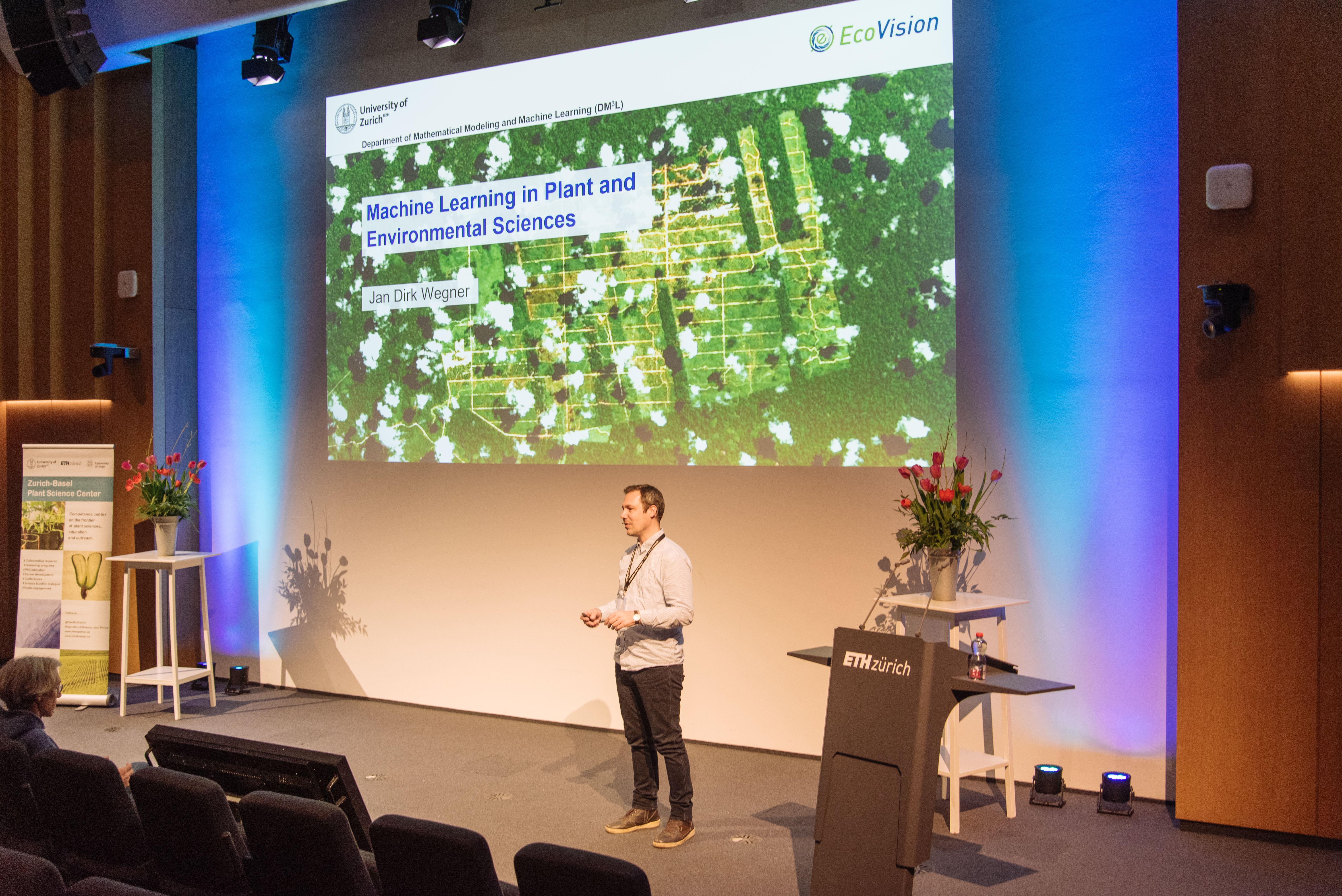
🌿 160+ scientists, one mission: Harness data science to understand and protect plant and environmental systems during the Winter School & Symposium 2025.
Last week, we brought together brilliant minds to explore how Machine Learning (ML) is revolutionising research—from biodiversity monitoring and plant phenotyping to ecosystem modelling and climate impact assessment.
👥 More Than Just Talks – A Thriving Community! This event was not just about ML, but about people, collaboration, and innovation. Researchers, students, and industry professionals came together to share knowledge, challenge ideas, and spark new collaborations.
👏 A Huge THANK YOU to all our speakers, participants, and organizers for making this event a success! Your enthusiasm, insightful questions, and engaging discussions proved that the future of ML in plant and environmental sciences is brighter than ever.
✨ Key Highlights from the Symposium Day 1:
🛰️The importance of ML in processing large datasets and unlocking hidden patterns was clear from the very first talk of the Symposium. Prof. Jan Dirk Wegner (UZH/ETH) set the stage with his keynote on large-scale biodiversity monitoring, introducing PhenoFormer and satellite imagery. Prof. Niklaus E. Zimmermann (WSL) provided an insightful overview of ML in Macroecological Research, highlighting its transformative potential.
🌏We saw stunning global maps of plant traits presented by Daniel Lusk (University of Freiburg) and learned how forests can be segmented down to individual trees using AI-powered workflows from Prof. Konrad Schindler’s group (ETH). Dr. Claudia Röösli (UZH) introduced The Genes from Space Monitoring Tool, an ambitious project linking climate change and biodiversity monitoring via satellite data. Dr. Elena Plekhanova (WSL) demonstrated how foundation models coupled with remote sensing are revolutionising ecological applications.
🌳 Dr. Mirela Beloiu Schwenke (ETH) challenged the audience to identify tree species from drone canopy images and invited participation in the TreeAI Global Initiative Challenge. Dr. Philipp Brun (WSL) gave a talk about how plant identification workflows can be enhanced by combining citizen science images and ecological information. Prof. Kentaro Shimizu (UZH) showcased how remote sensing reveals plant genotype behavior in fluctuating environments using PlantServation.
📈Prof. Benjamin Stocker (UNIBE) presented ML-driven predictions of terrestrial photosynthesis and carbon cycles, while Lorenz Allemann (ETH) continuing with ecosystem flux monitoring focused on N₂O emission dynamics in field conditions.
🏔️The session continued with Dr. Andrea Manconi (SLF) demonstrating ML applications for mapping alpine hazards and landslides.
🐠 The day concluded with Dr. Marco Baity-Jesi (EAWAG), who shared insights into ML-powered aquatic monitoring, pushing the boundaries of environmental research.
✨ Key Highlights from the Symposium Day 2:
🧬The second day of the symposium focused on ML applications in fundamental plant research. Dr. Oscar Dias (University of Minho, PT) explored its role in obtaining enhanced insights into plant metabolism, while Dr. Ciarán Kelly (School of Pharmacy and Biomolecular Sciences, IE) presented ML challenges for genomic predictions. Dr. Simon Snoeck (UZH) discussed ML in the context of receptor signaling.
🔬In the Plant Cell Biology Session Dr. Célia Baroux (UZH) illustrated how ML workflows can enhance plant cell biology research. While Dr. Lorenzo Cerrone (BioVisionCenter, UZH) introduced PlantSeq and Fractal Workflows, a ready to use ML-based plant segmenting tools. Finally, a PhD student Hongyuan Zhang (ETH) presented in a very compelling talk a versatile segmentation tool that integrates human input for easy correction.
🍃Dr. Elena Najdenovska (HEIG-VD) shared a patented electrophysiology-based method for monitoring plant stress, while Dr. Julien Massoni (ETH) showcased how ML can enhance scientific problem-solving using microbiota community patterns as an example.
🌾Shifting to agricultural applications, Dr. Andreas Hund (ETH) highlighted how ML is tackling key challenges in crop science. Dr. Daniele Silvestro (ETH/ University of Gothenburg, SE) sparked great interest with his Reinforcement Learning Models for evolutionary and conservation biology.
🎯The symposium concluded with Prof. Henning Müller (HES-SO) and Dr. Benjamin Deneu (WSL), who provided a comprehensive overview of the PlantCLEF initiative, from its inception to its latest challenges. Their talk emphasised the power of community-driven dataset collection, collaborative model training, and testing, all aimed at improving ML prediction accuracy, reproducibility, and real-world relevance.
Organiser: Bojan Gujas
Photos taken by Kien Nguyen.
📢 What's next? Stay tuned for upcoming PSC projects.
Symposium 2025 Info

🌿 Symposium 2025: Harnessing Machine Learning for Breakthroughs in Plant and Environmental Sciences
📅 Dates & Locations:
* Thursday, March 13, 2025 | 09:00 – 18:00
📍 ETH Zurich, Rämistrasse 101, 8006 Zürich, HG F30 (Audimax)
* Friday, March 14, 2025 | 09:00 – 17:00
📍 ETH Zurich, Rämistrasse 101, 8006 Zürich, HG D7.2
Open to all interested academics (registration required), this symposium will explore cutting-edge applications of machine learning (ML) in plant and environmental sciences while equipping participants with a crucial understanding of ML methodologies.
🔹 Day 1 (March 13): A broad perspective on how ML can drive advancements in tackling environmental challenges, climate adaptation, and biodiversity.
🔹 Day 2 (March 14): A deep dive into ML applications in fundamental plant research, including plant biochemistry, genomics, cell biology, and plant stress responses.
💡 Join our efforts to foster transdisciplinary collaborations!
Engage with leading experts, share your curiosity, and contribute to thought-provoking discussions during Q&A sessions. To ensure accessibility for a diverse audience, speakers will introduce their fields and ML methodologies, making the symposium an excellent opportunity to raise awareness, spark original ideas, and initiate new collaborations.
🍷 An Apéro-style networking lunch will provide a relaxed setting to continue discussions and connect with fellow researchers. Registration closed.
We look forward to seeing you there!
Program: Symposium 2025 Program (PDF, 154 KB) is now available
📩 Contact: Dr. Bojan Gujas
Symposium Program Day 1
March 13, 2025
Location: ETHZ, HG F30 (Audimax)
Symposium Program Day 2
Friday, March 14, 2025
Location: ETHZ, HG D7.2
Confirmed Speakers
Prof. Dr. Jan Dirk Wegner, University of Zurich and ETH Zurich
Prof. Dr. Kentaro Shimizu, University of Zurich
Prof. Dr. Daniele Silvestro, ETH Zurich / University of Gothenburg (SE)
Prof. Dr. Konrad Schindler, ETH Zurich
Prof. Dr. Benjamin Stocker, University of Bern
Prof. Dr. Henning Müller, HES-SO
Prof. Dr. Niklaus Zimmermann, WSL
Prof. Dr. Teja Kattenborn, University of Freiburg (DE)
PD Dr. Andreas Hund, ETH Zurich
PD. Dr. Célia Baroux, University of Zurich
Dr. Mirela Beloiu Schwenke, ETH Zurich
Dr. Marco Baity Jesi, EAWAG
Dr. Claudia Röösli, UZH
Dr. Elena Najdenovska, HEIG-VD
Dr. Oscar Dias, University of Minho (PT)
Dr. Andrea Manconi, WSL
Dr. Ciaran Kelly, School of Pharmacy and Biomolecular Sciences (IE)
Dr. Philipp Brun, WSL
Dr. Simon Snoeck, UZH
Dr. Julien Massoni, ETH Zurich
Dr. Lorenzo Cerrone, University of Zurich, BioVision
Dr. Elena Plekhanova, WSL


























